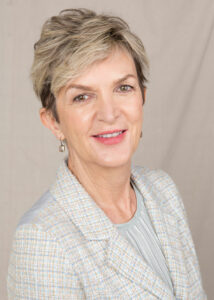
Defining moments and their transformative effect
By Dr Attracta Langan
A defining moment is a point in your life when you are urged to make a pivotal decision or when you experience something that fundamentally changes you. Not only do these moments define us, but they have a transformative effect on our perceptions and behaviours.
The global pandemic has presented each of us with “a defining moment” to review and realign our core values to a direction that will bring forth a better world than our Pre-Covid one. It will require us to take a proactive role in our local societies and institutions to co-create and advocate a more humane and inclusive world than the polarised societies we have today.
Digital technologies have made us all global citizens, where, in real-time, we see how business and civic institutions impact societal well-being at micro and macro levels. These impacts heighten our professional and ethical accountabilities to ensure new and existing practices are not diminishing humanity’s social progress, and our governments are promoting humanity’s progress and protecting our global commons in addition to economic interests.
The human toll wrought by Covid 19 vividly demonstrates our shared humanity. Building back better will mean drawing on our shared humanity and uniquely human ability to embrace new values around our use of technologies, wealth distribution, societal progress measurements and environmental protection. Our current default setting of “legal compliance” has failed to protect the vulnerable as well as our planetary home. We need higher-order values embracing our responsibilities to our fellow global citizens and a willingness to respond to their needs for adequate food, affordable homes, human rights and the ability to participate in the worldwide marketplace. The Scandinavian countries have ably demonstrated that when those with power design a society that promotes the well-being of the majority, it results in human flourishing. Finland, Norway, Sweden and Denmark continually top the charts for the most liveable countries with the happiness populations, followed by Iceland, Austria and Switzerland, where “the common good” also takes priority.
The pandemic exposes the shortfalls of many of our prevailing leadership models and governance systems. These have spawned a winners take all economy characterised by casualised labour, stagnant wages and an upsurge in worldwide human trafficking and slavery. Those developed countries who enable corrupt developing countries leaders to “bank” their takings; send their children to their elite schools, and turn a blind eye to the intergenerational hardships they spawn are helping to facilitate global corruption. Such corruption robs societies of the medical, educational, and social investments needed to protect human flourishing. The U.N. lists corruption as “one of the biggest impediments” to achieving its 2030 Sustainable Development Goals.
Meanwhile, scientists warn that commercial farming and industry pollution has resulted in an era of mass extinction and that this loss of biodiversity is accelerating. And, despite recent progress, women still have only three-quarters of the legal rights of men. We face immediate ethical challenges on so many fronts that only a complete review of the values underpinning personal and organisational accountabilities can pave the way for change.
It starts with those who have the power today – and that means economic power in a world where the economically powerful are leveraging their power to gain political influence – to set the appropriate tone from the top. Many of the younger digital leaders are already showing leadership and stepping up to this challenge such as Australia’s co-founders of Canva https://bit.ly/3CZVOax who recently pledged to give a 30 per cent stake – valued at $US12 billion ($16.4billion) – to a charitable foundation seeking to eliminate extreme poverty and explaining their decision to take a stand against world wealth inequity because they believed we already have enough to reduce world poverty; we just need the will.
The World Economic Forum (WEF) is challenging all leaders to address their ethical accountabilities, calling on those in power not to “snap back” to pre-covid societal and intersocietal inequalities. Instead, they advocate for all professionals to learn from the shortfalls exposed by Covid and actively leverage new digital technologies to design “moon shots” and consciously design business practices to enable a more humane economy to emerge. They recognise that digital technologies are not neutral and can harm as well as enhance human well-being. Calling it The Great Reset, WEF is engaging leaders to ensure digital technologies become a force for good and adopt new social progress measures rather than Goss Domestic Product (GDP) – a relic from a predigital age.
Whether we are digital entrepreneurs, old-fashioned bricks & mortar CEOs, professional advisers or conscientious employees, we each have a role in bringing forth a more humane world and helping to raise the ethical floor below the global marketplace. We owe our children to push back against the self-interests that created today’s humanitarian and environmental emergencies.
Over US$1 trillion is paid in bribes around the world every year. Many players aid and abet this corruption from countries permitting tax havens to hosting secret bank accounts – it’s time to champion fairness and transparency as the necessary stepping stones to a fairer world order.
We can learn from the past and push for higher standards of integrity. It depends on everyone in our global village exposing corrupt practices where they see them – be it politicians pork barreling or multinationals paying bribes to secure lucrative public contracts or avoiding paying their fair share of taxes. Our micro impacts shape our macro world, so new values must start in our sphere of influence.
There is much more to do to answer the call of living higher values. It means accepting we can each make a difference and adopt a proactive role to advocate, agitate, petition and use strength in numbers to demand a revision of existing governance models. If we can’t spare the time, we can live our values by personal tithing to fund front line change-makers such as GetUp or Oxfam.
We live our ethics when we make values-based decisions. Today’s leaders find themselves at the intersection of ethical accountability and business goals. Existential questions around business’ role in addressing our climate emergency, institutional corruption, technological impacts on the global workforce, and ways to build a fairer balance between business prosperity and societal flourishing need answering.
The good news is that enlightened global leaders are already responding to WEF’s call for “A Great Reset” and are talking about transforming capitalism to make it more inclusive and socially accountable by purposely designing human-centred systems. They acknowledge that when the goal of the system changes, the system itself changes.
Corruption is a symptom, not a cause, of systems that lack integrity. To beat it, we have to look at sustainable ways to build the accountability of those in power. Already leading multinationals are implementing initiatives to enhance corporate transparency and integrity. The United Nations Global Compact has brought together over 2,000 private companies, UN agencies, and labour and civil society organisations to uphold human rights, labour, environmental protection and anti-corruption principles. At the same time, the WEF is championing a scorecard made up of four dimensions focusing on balancing the economic gains with humanity and the planet’s needs.
We need values-driven individuals to guide our 4th Industrial Revolution and we can begin by recalibrating what it means to be a global citizen. We can do this by reclaiming public spaces, be they virtual or face to face, reaffirming the merits of living a virtuous life informed by values of justice, care, goodwill and respect towards others. We can reprioritise wisdom as a defining character trait and open our hearts to learning, compassion, respect, kindness, and accountability to others. Research shows that most of us see ourselves as ethical people. The selfish gene is a myth. Elinor Ostrom was awarded the Nobel prize in 2009 for demonstrating how people are predisposed to cooperation and can create rules and organisations for the equitable management of shared resources. Many millenniums are already displaying prosocial natures by rejecting greed and seeking to work with organisations with a purpose and who show respect for social well-being as the hallmarks of a life well-lived.
We move to the vision we have of ourselves. Let’s make sure our vision has moonshot momentum to get us to the future we want. By working across industries and institutions, each of us will contribute to The Great Reset.
About the Author:
 Dr Attracta Lagan is a business ethicist working in the corporate and government areas to apply behaviour science to design values-driven organisational cultures. She is based in Sydney and works extensively in Asia and across Australia.
Dr Attracta Lagan is a business ethicist working in the corporate and government areas to apply behaviour science to design values-driven organisational cultures. She is based in Sydney and works extensively in Asia and across Australia.





